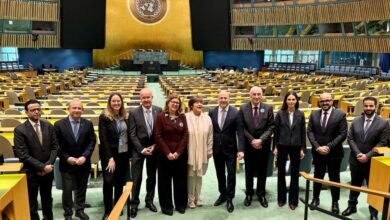Addressing Plastic Pollution in Tourism Through Sustainable Procurement

This guidance, developed within the framework of the Global Tourism Plastics Initiative, focuses on the procurement of plastic items and packaging (and its alternatives) in the tourism sector and aims to provide practical support for procurement practitioners within the range and global reach of tourism businesses that need to address the impact of single-use plastics and packaging within broader sustainable procurement practice.
This tool draws from existing sustainable procurement good practices that, when implemented systematically throughout the whole procurement cycle, will help increase the circularity in the use of plastics. It provides practical support in identifying the potential for eliminating plastic packaging and plastic items where possible (as well as introducing reuse models as alternatives to single-use items and packaging), in addition to reducing the consumption of plastics where avoidance is not possible (including measures for purchasing recyclable and compostable plastics and plastics with recycled content).
This guidance follows the procurement stages from pre-tender actions around planning procurement approaches including the consideration of elimination, reduction in consumption and adoption of reuse models within the operation of the tourism business. The guidance includes practical examples for tendering, including actions relating to supplier engagement and setting tender specifications. It recognizes that procurement is a continuous cycle of action and therefore also covers contract management and performance improvement within the tourism businesses and their supply chains. A key aspect of the guidance is providing practical tools for procurers in tourism businesses. These include model wording for tender criteria; a hierarchical decision tree for informing actions to eliminate and reduce the dependency on plastics within tenders; and a summary of procurement tools such as life-cycle costing and using standards and labels to help verify claims.
This guidance is also relevant to policymakers, as it recognizes that procurement actions play an important role in providing evidence for how to improve the implementation of plastic reduction strategies. Recommendations are therefore provided for key decision-makers in the tourism business to ensure that sustainable and circular procurement fulfils its potential to support the fourth UN Environment Assembly Resolution 6 on Marine litter and microplastics and deliver the Global Tourism Plastics Initiative vision.
The Global Tourism Plastics Initiative launches Plastic Measurement Methodology tools for Accommodation Providers
Our partners, the GTPI launched two tools for Plastics Measurement Methodology for Accommodation Providers, these are two Excel Tools which can be used at either individual property or whole portfolio level to facilitate the plastic calculation process, and a Reporting Template for GTPI signatories to submit their performance to GTPI for each reporting cycle.
The Tools help to generate the following GTPI performance metrics: (i) annual total weight of plastics (metric tonnes), (ii) weight of plastics (kg) per guest night, and (iii) percentage of plastics which are compostable (%). The tools are the following ones:
• The Property Tool is used by the property to identify plastic items used and consolidate relevant data (e.g. quantity, weight and compostability) to output its GTPI performance metrics.
• The Portfolio Tool consolidates the data inputted within the Property Tools by its properties to output GTPI performance metrics for the entire portfolio. Step-by-step instructions can be found in the respective tools.
You can download calculation tools below:
One Planet Network Addressing Plastic Pollution through Sustainable Procurement
One Planet Network GTPI Plastic Measurement Methodology Tool




